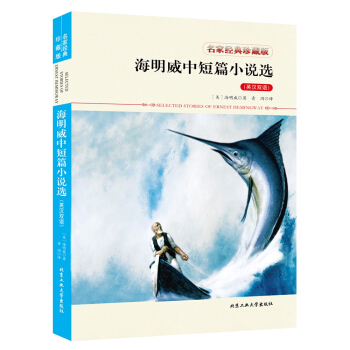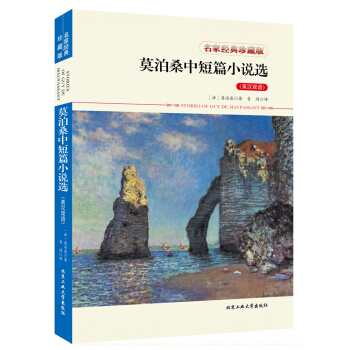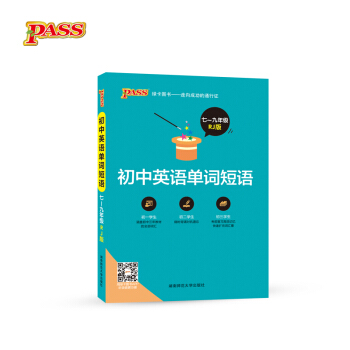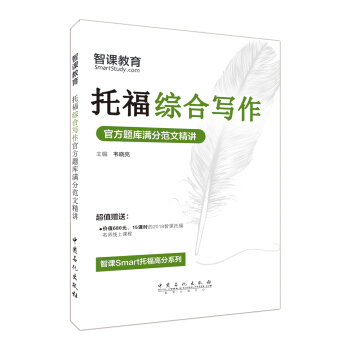

具体描述
编辑推荐
马克·吐温的中短篇小说犹如一颗颗璀璨的明珠,折射出他那个时代美国人民丰富的精神世界以及他们的物质生活的风貌。此书收录了他的数十篇中短篇小说,有的讽刺宗教的伪善,人们价值观的颠倒,有的探讨社会发展和环境保护,有的探讨人类和动物的关系,当然还有以人类*初无知的眼光思考混沌之初的世界。这些中短篇小说让读者在一笑之余能够深深地思考我们生活在其中的世界,思考我们的生活,我们的政治,我们的宗教,我们的人生价值观等等。内容简介
《马克·吐温中短篇小说选》收录了马克?吐温的《卡县跳蛙》、《坏孩子的故事》、《百万英镑》、《火车上的嗜人事件》、《我最近辞职的经过》、《田纳西的新闻界》、《好孩子的故事》、《我是如何编辑一份农业报的》、《某大宗牛肉合同买卖签订纪实》、《我给参议员当秘书的经历》、《败坏了哈德莱堡的人》等许多脍炙人口的短篇佳作,文笔幽默,语言辛辣,尖锐的讽刺了和揭露了像瘟疫般盛行于美国的投机、拜金狂热,及暗无天日的社会现实。作者简介
马克·吐温(1835-1910),美国作家,美国批判现实主义文学的奠基人。一生创作颇丰,作品多以密西西比河畔为背景,反映十九世纪末期美国社会的方方面面,其文笔幽默诙谐,针砭时弊深刻准确。译者:青闰(1965~),河南武陟人。本名宋金柱,常用笔名听泉、宣碧。现供职于焦作大学翻译中心。擅长双语互译。迄今已在外文出版社、译林出版社、上海交通大学出版社、东华大学出版社、大连理工大学出版社、中国宇航出版社等出版双语著作多部。另在《世界文学》《译林》《当代外国文学》《英语世界》等重要报刊发表译文和论文多篇。他翻译的原则是:“以雅俗共赏为基点,注重选材的广度、深度和科学性,整体把握字词句段篇,力求做到形声色味神的完美统一。”精彩书评
19世纪美国批判现实主义文学的优秀代表,他是怀有赤子之心的顽童,亦是仗义执剑的骑士! 成了幽默家,是为了生活,而在幽默中又含着哀怨,含着讽刺,则是不甘于这样的缘故了。——鲁迅
目录
The £1,000,000 Bank-Note / 百万英镑 1The Celebrated Jumping Frog of Calaveras County / 卡拉维拉斯县有名的
跳蛙 25
The Story of the Bad Little Boy / 坏小子的故事 32
The Facts Concerning the Recent Resignation / 我最近辞职的经过 36
Cannibalism in the Cars / 火车上的食人族 43
The Capitoline Venus / 卡庇托利山维纳斯的传奇 53
Running for Governor / 竞选州长 60
How I Edited an Agricultural Paper / 我怎样编农业报 66
The Story of the Good Little Boy / 好小子的故事 72
The Facts in the Case of the Great Beef Contract / 大宗牛肉合同事件纪实 77
A Medieval Romance / 中世纪传奇一则 86
Journalism in Tennessee / 田纳西的新闻界 95
A True Story / 一个真实的故事 102
A Curious Experience / 稀奇的经历 108
A Mysterious Visit / 神秘的访问 142
The Stolen White Elephant / 白象被盗记 148
A Ghost Story / 鬼故事 173
A Curious Dream / 怪梦 180
A Double-Barrelled Detective Story / 案中案 189
The Californian’s Tale / 加州人的故事 244
Is He Living or Is He Dead? / 生死两重天 253
The Man That Corrupted Hadleyburg / 败坏哈德莱堡的人 264
A Dog’s Tale / 狗的自述 323
精彩书摘
When I was twenty-seven years old, I was a mining-broker’s clerk in San Francisco, and an expert in all the details of stock traffic. I was alone in the world, and had nothing to depend upon but my wits and a clean reputation; but these were setting my feet in the road to eventual fortune, and I was content with the prospect.My time was my own after the afternoon board, Saturdays, and I was accustomed to put it in on a little sail-boat on the bay. One day I ventured too far, and was carried out to sea. Just at nightfall, when hope was about gone, I was picked up by a small brig which was bound for London. It was a long and stormy voyage, and they made me work my passage without pay, as a common sailor. When I stepped ashore in London my clothes were ragged and shabby, and I had only a dollar in my pocket. This money fed and sheltered me twenty-four hours. During the next twenty-four I went without food and shelter.
About ten o’clock on the following morning, seedy and hungry, I was dragging myself along Portland Place, when a child that was passing, towed by a nurse-maid, tossed a luscious big pear—minus one bite—into the gutter. I stopped, of course, and fastened my desiring eye on that muddy treasure. My mouth watered for it, my stomach craved it, my whole being begged for it. But every time I made a move to get it some passing eye detected my purpose, and of course I straightened up then, and looked indifferent, and pretended that I hadn’t been thinking about the pear at all. This same thing kept happening and happening, and I couldn’t get the pear. I was just getting desperate enough to brave all the shame, and to seize it, when a window behind me was raised, and a gentleman spoke out of it, saying: “Step in here, please.”
I was admitted by a gorgeous flunkey, and shown into a sumptuous room where a couple of elderly gentlemen were sitting. They sent away the servant, and made me sit down. They had just finished their breakfast, and the sight of the remains of it almost overpowered me. I could hardly keep my wits together in the presence of that food, but as I was not asked to sample it, I had to bear my trouble as best I could.
Now, something had been happening there a little before, which I did not know anything about until a good many days afterwards, but I will tell you about it now. Those two old brothers had been having a pretty hot argument a couple of days before, and had ended by agreeing to decide it by a bet, which is the English way of settling everything.
You will remember that the Bank of England once issued two notes of a million pounds each, to be used for a special purpose connected with some public transaction with a foreign country. For some reason or other only one of these had been used and canceled; the other still lay in the vaults of the Bank. Well, the brothers, chatting along, happened to get to wondering what might be the fate of a perfectly honest and intelligent stranger who should be turned adrift in London without a friend, and with no money but that million-pound bank-note, and no way to account for his being in possession of it. Brother A said he would starve to death; Brother B said he wouldn’t. Brother A said he couldn’t offer it at a bank or anywhere else, because he would be arrested on the spot. So they went on disputing till Brother B said he would bet twenty thousand pounds that the man would live thirty days, anyway, on that million, and keep out of jail, too. Brother A took him up. Brother B went down to the Bank and bought that note. Just like an Englishman, you see; pluck to the backbone. Then he dictated a letter, which one of his clerks wrote out in a beautiful round hand, and then the two brothers sat at the window a whole day watching for the right man to give it to.
……
用户评价
说实话,我一开始有点担心这本“双语”选集会不会只是简单地把中英文并排放置,导致阅读体验不佳,但实际情况远超预期。英文原版保留了吐温那种独特的、带着浓重地方色彩的语言风格,那种奔放、不拘一格的叙事腔调,读起来酣畅淋漓,仿佛能闻到密西西比河畔的风味。而中文译本的质量,同样令人称赞。它没有过度地“净化”原著的粗犷,反而巧妙地捕捉了那种美式幽默的精髓,许多俚语和双关语都被处理得恰到好处,既传达了原意,又不失中文的流畅和韵味。对于我这种希望在阅读中提升外语水平的读者来说,这种对照阅读的模式简直是最佳的工具书。我常常会特意对比一些关键的句子,看看中文译者是如何“翻译”出那种只有在特定文化背景下才能理解的笑点或讽刺,这本身就是一种独特的学习享受。
评分从文学史的角度看,这些中短篇是理解马克·吐温从早期幽默作家向严肃批判家转变的关键路径。我发现,早期的一些作品,虽然主题略显轻快,但那种对地方习俗和民间智慧的捕捉已经初见端倪;而到了后期,那些笔触愈发老辣,针对宗教、政治和阶级偏见的抨击也愈发直接和辛辣。这种渐进式的观察,对于研究他的创作演变脉络是非常有帮助的。而且,这些短篇的篇幅适中,非常适合碎片化的阅读时间。即便是工作日晚上只剩半小时的空档,也能完整地读完一篇,获得扎实的满足感,而不是像长篇那样需要长时间的沉浸。这种“短平快”的阅读体验,却带来了深度和广度兼具的思考,着实是当下快节奏生活中的一剂良药。
评分这本选集真是让人眼前一亮,特别是那些被我们熟知的长篇杰作背后那些巧妙构思的中短篇故事。我一直觉得,马克·吐温的才华不仅仅体现在《汤姆·索亚历险记》或《哈克贝利·费恩历险记》那种波澜壮阔的叙事中,他的智慧和讽刺的锋芒,往往更集中、更锐利地体现在那些篇幅精悍的作品里。比如,他对于美国社会虚伪现象的揭露,在那些短篇中简直是入木三分,读起来就像是被人拿着一把锋利的小刀,精准地划开了那些精致的假面具。那些看似轻松诙谐的对话背后,其实藏着对人性的深刻洞察,那种不动声色的幽默,比起直接的批判更具穿透力。我特别欣赏他那种将荒诞与现实熔铸一炉的本领,读完之后,常常会陷入一种复杂的沉思:究竟是这个世界太荒谬,还是我理解得还不够深?这本书的排版和选材,也体现了编辑者的用心,那些被时间淘洗过的经典,读来依然津津有味,完全没有老旧之感。
评分我必须得提一下这本书的装帧和手感,这在很大程度上影响了阅读的愉悦度。纸张的选择非常考究,不是那种廉价的、反光的纸张,而是带有微微哑光质感的米黄色纸张,长时间阅读下来眼睛也不会感到疲劳。字体大小和行距也设计得恰到好处,即便是对照阅读英文原文,也不会感到拥挤或跳跃。而且,作为一个经常携带书籍在外的读者,我对书籍的耐用性很看重,这本书的装订结实,封面设计也采用了那种低调却有质感的纹理,让人爱不释手。拿到手里,就感觉沉甸甸的,这不仅仅是纸张的重量,更是一种对经典作品应有的尊重感。它不仅仅是一本“工具书”,更是一件值得珍藏的阅读载体,完美地承载了这些不朽的文字。
评分这本书收录的篇目,选择得非常具有代表性,它不像某些选集那样只偏爱那些耳熟能详的“大路货”,而是挖掘了一些相对冷门但艺术价值极高的作品。这些中短篇小说,在结构上往往更加精巧,叙事节奏也更为紧凑,几乎没有一句多余的废话。我特别喜欢他处理时间线和视角转换的方式,尤其是在那些带有自传性质的轶事短篇里,他那种老顽童般的叙事者形象跃然纸上,让你分不清哪里是真实的经历,哪里又是被夸张和戏谑过的艺术加工。这种模糊的界限,恰恰是其魅力所在——它让你感觉,你不仅是在阅读一个故事,更是在与一位智慧而狡黠的老者进行一场精彩的对谈。读完整篇,就好像经历了一次精神上的迷你探险,回味无穷。
评分中英文双语,凑单买的,很划算,英文字体有点小。再大些就好些了。呵呵……呵呵……
评分敷面膜分开发咖啡咖啡卡夫卡咖啡咖啡咖啡快看看腐男腐女呢腐男腐女方法你放假减肥减肥减肥减肥进房间减肥减肥进房间减肥减肥敬酒服你发
评分一直在京东买书,活动价的时候非常划算
评分很好吃很不错下次还来买m
评分买给孩子的,先囤起来,到时跟孩子一起学习,英语这个语言工具一定不能落下
评分有时间几天看下书,比玩手机好?
评分很好呀,很好呀,书非常不错呀
评分价格实惠质量好,信赖京东商城网购。
评分还不错的书,价格优惠,纸张也很好,中英文版,买了好几本这套系列的
相关图书
本站所有内容均为互联网搜索引擎提供的公开搜索信息,本站不存储任何数据与内容,任何内容与数据均与本站无关,如有需要请联系相关搜索引擎包括但不限于百度,google,bing,sogou 等,本站所有链接都为正版商品购买链接。
© 2026 windowsfront.com All Rights Reserved. 静流书站 版权所有







![飞鸟集+新月集(英汉对照注释版 套装全2册) [Stray Birds+The Crescent Moon] pdf epub mobi 电子书 下载](https://pic.windowsfront.com/12129055/5ad5a6c3N69d78fcb.jpg)












